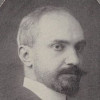“ if we know a thing to be useless and fictitious, the uncomfortable haunting sense of waste and trickery prevents all enjoyment, and therefore banishes beauty. ”
George Santayana, The Sense of Beauty (1896). copy citation
| Author | George Santayana |
|---|---|
| Source | The Sense of Beauty |
| Topic | enjoyment beauty |
| Date | 1896 |
| Language | English |
| Reference | |
| Note | |
| Weblink | http://www.gutenberg.org/files/26842/26842-h/26842-h.htm |
Context
“Thus a cottage-chimney, stout and tall, with the smoke floating from it, pleases because we fancy it to mean a hearth, a rustic meal, and a comfortable family. But that is all extraneous association. The most ordinary way in which utility affects us is negatively; if we know a thing to be useless and fictitious, the uncomfortable haunting sense of waste and trickery prevents all enjoyment, and therefore banishes beauty. But this is also an adventitious complication. The intrinsic value of a form is in no way affected by it.
Opposed to this utilitarian theory stands the metaphysical one that would make the beauty or intrinsic rightness of things the source of their efficiency and of their power to survive.”
source


